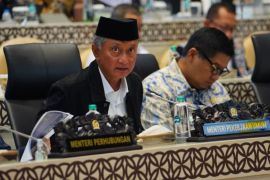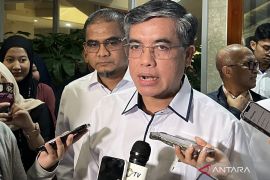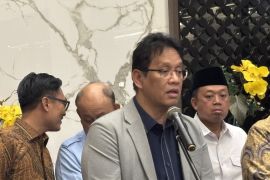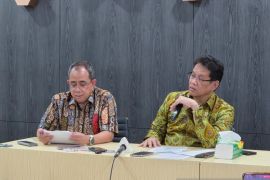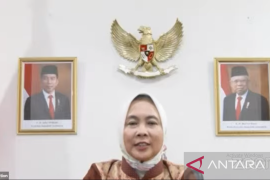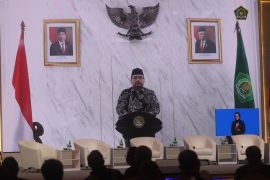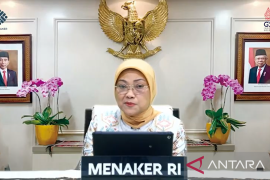On a quarter-to-quarter (qtq) basis, economic growth was recorded at 1.06 percent in Q4 2021, exceeding the normal pattern, which has shown negative growth historically (Q4 growth in 2015–2019 averaged -1.7 percent).
The pace of economic growth in the fourth quarter of 2021 was supported by positive growth in all components of expenditure and the main production sectors.
The successful controlling of the pandemic after the spread of the Delta variant in the third quarter of 2021 helped build public confidence in carrying out activities and encouraged the business world to expand.
Export activity continued to show high growth, in line with increasing global commodity demand and prices. Meanwhile, imports also rose, reflecting strengthening recovery in domestic demand, particularly in the production sector.
In the business sector, leading national sectors such as manufacturing, trade, construction, and transportation continued the recovery trend with strong growth.
Related news: Finance Ministry projects 5.2% economic growth in 2022
According to head of the Fiscal Policy Agency at the Ministry of Finance, Febrio Kacaribu, the successful control of the pandemic, public participation in implementing the health protocols and vaccinations, the effectiveness of fiscal stimulus policies by the government, and good synergy between authorities in maintaining stability and accelerating economic recovery became the main factors that helped sustain national economic recovery.
Overall in 2021, the Indonesian economy grew by 3.69 percent, in line with the outlook of the Ministry of Finance, he said.
In terms of the pace of recovery, Indonesia's GDP in 2021 managed to surpass the level recorded during the pre-pandemic period. This is noteworthy considering that there are still many economies that have not been able to return to their pre-pandemic levels, such as the Philippines, Mexico, Germany, France, and Italy, he added.
With this economic growth, Indonesia's GDP per capita managed to rise from Rp57.3 million in 2020 to Rp62.2 million in 2021 (up 8.6 percent), or US$4,349.5, he said. With this achievement and the latest World Bank classification (2020), it is estimated that Indonesia will re-enter the Upper-Middle Income Countries group in 2021, Kacaribu informed.
Further, a flexible and responsive state budget during the pandemic helped maintain the sustainability of the pace of economic recovery, he said.
The government managed to respond quickly to the rapidly changing COVID-19 situation throughout 2021, especially during the emergence of the Delta wave, through the policy of refocusing the 2021 State Budget, he added.
The expansion and extension of social protection programs and support for the business sector helped maintain positive growth in the third quarter of 2021, he noted. Further, the temporary realization of state expenditures in 2021 reached Rp2,786.8 trillion (101.3 percent of the ceiling), he said.
Meanwhile, the provisional realization under the 2021 national economic recovery (PEN) program reached Rp658.6 trillion (88.4 percent of the Rp744.77 trillion ceiling), higher than the previous year's realization of Rp575.8 trillion, he pointed out.
The maintained pace of economic recovery also had a positive effect on State Revenue, which swelled 21.6 percent, mainly supported by tax revenues, which grew 19.2 percent (yoy), or reached 103.9 percent of the state budget target and returned to the pre-pandemic level seen in 2019, he informed.
Economic development and the role of the state budget in maintaining the pace of recovery throughout 2021 was also felt by various levels of society, Kacaribu said.
All indicators of community welfare showed a progressive direction of improvement, he noted. Economic improvements and social protection programs succeeded in suppressing the poverty rate to a single-digit level of 9.71 percent as of September 2021 (compared to 10.19 percent in September 2020), he added.
Meanwhile, strengthening economic activity also aided the absorption of around 2.6 million people in the workforce in the period from August 2020–August 2021, he noted. Consequently, the open unemployment rate fell to 6.49 percent as of August 2021 (compared to 7.07 percent in August 2020), he said.
The crucial role of the state budget in maintaining the quality of human resources was also reflected by the increase in the human development index from 71.94 in 2020 to 72.29 in 2021, he added.
Related news: Economic growth in Q4 2021 driven by industrial recovery: Hartarto
Economic Outlook
The government is optimistic that the economic performance will be stronger this year and grow by 5.2 percent, Kacaribu said.
This performance will be supported by strengthening investments and exports as well as the continued recovery in public consumption, he added.
This, of course, must be supported by comprehensive pandemic control efforts, including massive acceleration of vaccinations, he said.
In addition, structural reforms must also continue to be implemented consistently and comprehensively to strengthen the economic foundation by increasing national competitiveness and productivity, he added.
However, there are a number of risks that must be monitored and anticipated, in particular the spread of the Omicron variant, he said.
Since the end of 2021, various countries have experienced a new wave of COVID-19 due to this variant, he noted.
The experience of various countries shows that Omicron infections spread faster than the Delta variant, but also recede faster, he said.
Currently, Indonesia is faced with an increase in daily cases of the Omicron variant, with the case count crossing 36 thousand as of February 6, he added.
However, the hospital occupancy rate (BOR) and mortality are still relatively lower than the Delta wave, he noted.
Nevertheless, people must remain vigilant by maintaining discipline in implementing the health protocols and be on guard to prepare emergency measures, if needed, he said.
The availability of adequate vaccines can be a crucial factor in handling the Omicron wave, he added.
The government will encourage the enforcement of health protocols, strengthen the health system, and accelerate the vaccination program, he said adding, 48.2 percent of Indonesia's population has received a complete dose so far.
Community participation and discipline are very important in implementing health protocols and vaccinations, he said. In support of this, the state budget will remain flexible and responsive to face various challenges ahead, he added.
Meanwhile, Bank Indonesia (BI) said it is optimistic that the global economy will recover in a balanced manner, despite the COVID-19 pandemic continuing to plague several nations.
"Everybody is handling the Omicron. While they are experiencing a disruption in the supply chain, these nations will recover," BI Governor Perry Warjiyo projected.
It is estimated that global economic growth will slow to 4.4 percent from 5.4 percent the previous year, he said. Commodity prices are estimated to remain high, he added.
"For exporters, this is an opportunity, but the supply chain problem must be handled. This export performance will drive the economy nationally and in regions," Warjiyo said.
"Commodity prices have also improved, so let's take advantage of this opportunity," he added.
Warjiyo further said he expects all parties to get involved in fixing the domestic investment climate. With this, productivity will improve, he explained.
"The global economy will also improve equally. This is an opportunity for us," he remarked.
In addition, the government, including BI, will continue to bolster the capacity of micro, small, and medium enterprises (MSMEs), he said.
Related news: BI optimistic of balanced global economic recovery
Related news: Entrepreneurs driving national economic growth: deputy minister
Editor: Sri Haryati
Copyright © ANTARA 2022

